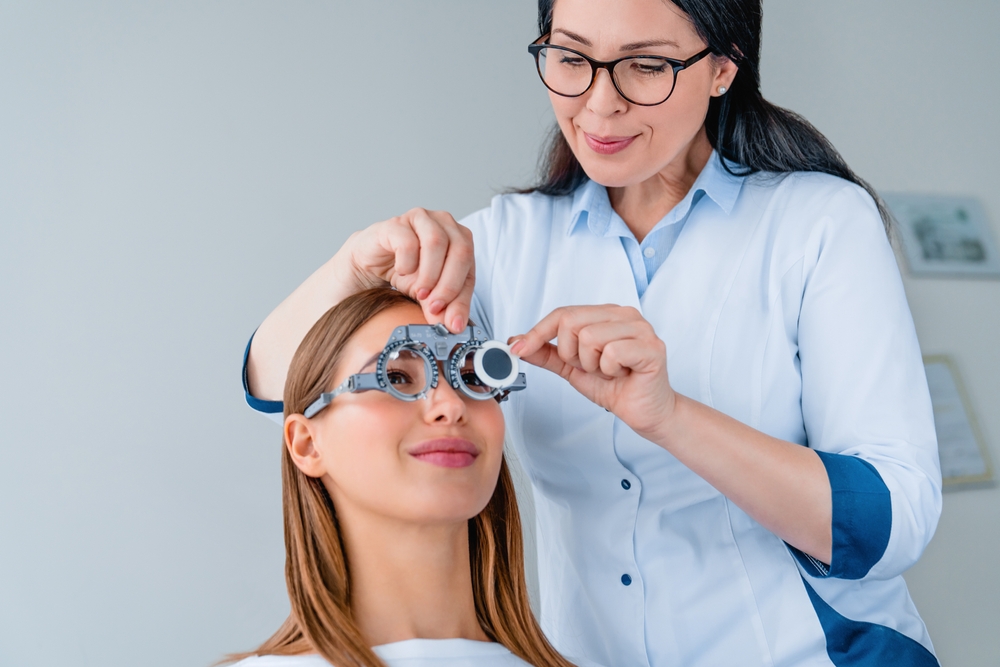
Myopia Management: Which Option Is Right for Your Child?
Myopia, commonly known as nearsightedness, is becoming increasingly prevalent among children worldwide. This condition, where distant objects appear blurry while close-up vision remains clear, can worsen over time if left unmanaged. Fortunately, myopia management offers several effective treatment options designed to slow the progression of myopia and support long-term eye health.
Why Myopia Management Matters
The importance of myopia management goes beyond simply correcting vision; it’s about protecting your child’s eye health for the future. High levels of myopia can lead to serious eye health issues, including retinal detachment, glaucoma, and cataracts. By taking proactive steps now, you’re investing in a lifetime of clearer, healthier vision for your child. Here’s a closer look at the leading myopia management solutions available and what they offer.
Orthokeratology (Ortho-K) Lenses
Ortho-K lenses are specially designed contact lenses that children wear overnight. These lenses gently reshape the cornea while your child sleeps, providing clear vision throughout the day without the need for glasses or contacts. Research shows that Ortho-K can significantly slow myopia progression, making it a popular choice for children who are active or prefer a non-invasive option.
Benefits of Ortho-K:
• Provides clear, glasses-free vision during the day.
• Reduces myopia progression effectively.
• Ideal for sports and outdoor activities.
Multifocal Contact Lenses
Multifocal contact lenses, are designed with multiple focusing zones that help reduce eye strain and control the eye’s growth. These lenses can be a great option for children who are not ready for Ortho-K but still need a solution to manage myopia progression.
Benefits of Multifocal Lenses:
• Available as contacts, offering comfort and flexibility.
• Controls myopia progression while providing clear vision.
Atropine Eye Drops: An Adjunct Therapy for Myopia Control
Atropine eye drops, particularly in low-dose form, are gaining recognition as a valuable adjunct therapy for slowing myopia progression. Administered once daily, these drops help relax certain muscles in the eye that contribute to myopia development. While atropine drops can be especially beneficial for younger children who may find contact lenses challenging or prefer a treatment without corrective lenses, they are most effective when used in conjunction with other therapies, such as multifocal contact lenses or orthokeratology (ortho-k).
Benefits of Atropine Drops as Adjunct Therapy:
- A non-invasive solution suitable for all ages.
- Effectively slows down myopia progression when combined with multifocal lenses or ortho-k.
- Easy to incorporate into a daily routine alongside other myopia management strategies.
By integrating atropine drops into a comprehensive myopia management plan, parents and eye care professionals can provide a more holistic approach to slowing myopia progression in children.
Choosing the Right Myopia Management Option
Selecting the best myopia management option for your child depends on various factors, including their age, lifestyle, and level of comfort with each treatment. For active children, Ortho-K and MiSight lenses may be the best choice, allowing them freedom from glasses during the day. Atropine eye drops offer a convenient, non-invasive alternative, especially for younger children, while multifocal lenses provide flexibility and control. At Monroe Vision Clinic, we can guide you through each option and find the best fit for your child’s needs.
If you’d like to learn more about myopia management or schedule a consultation, contact Monroe Vision Clinic today. Together, we can help your child see the world more clearly and maintain healthy eyes for years to come. Visit our office in Monroe or Snohomish, Washington. Call (360) 794-2020 to book an appointment.








